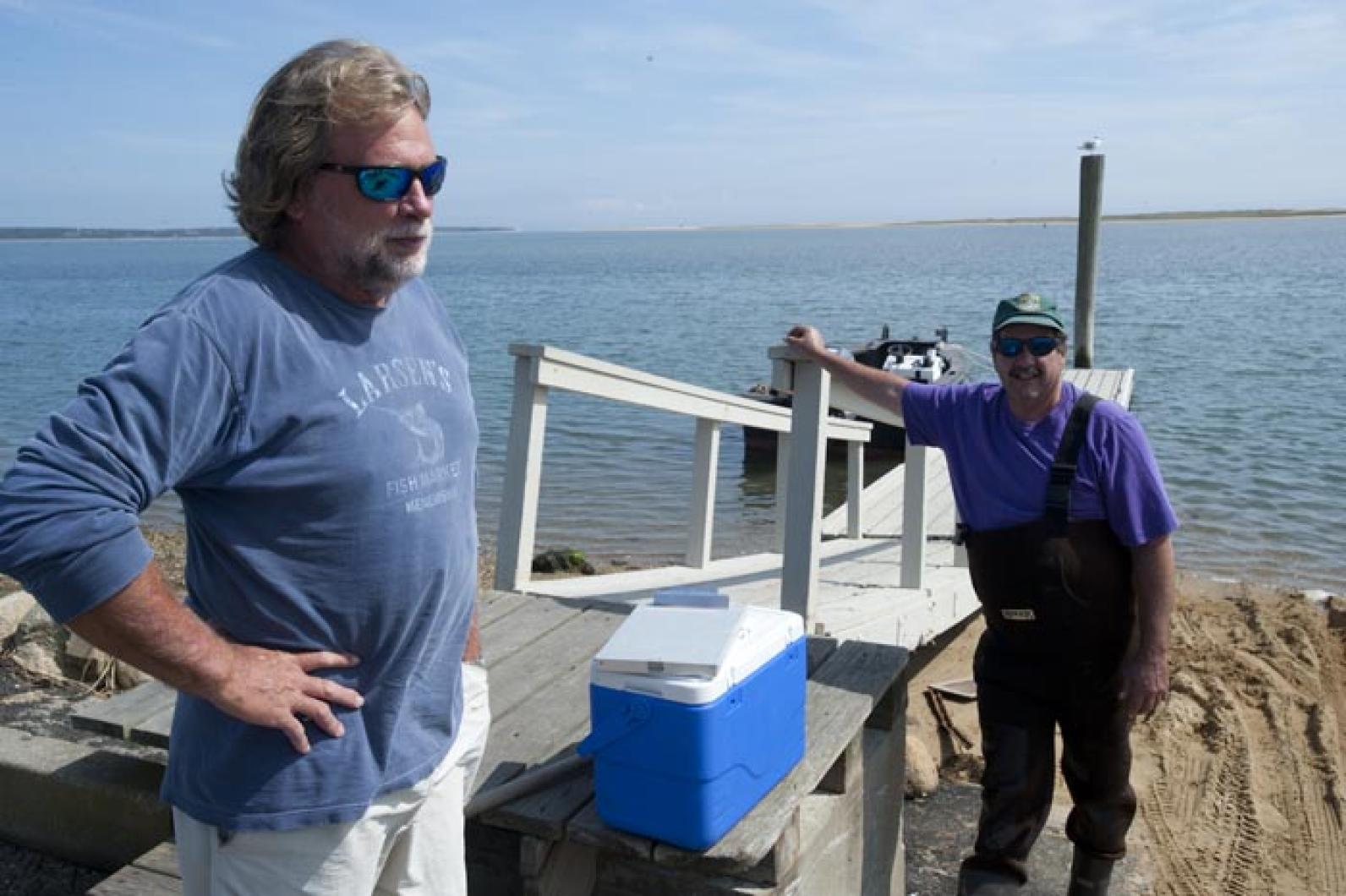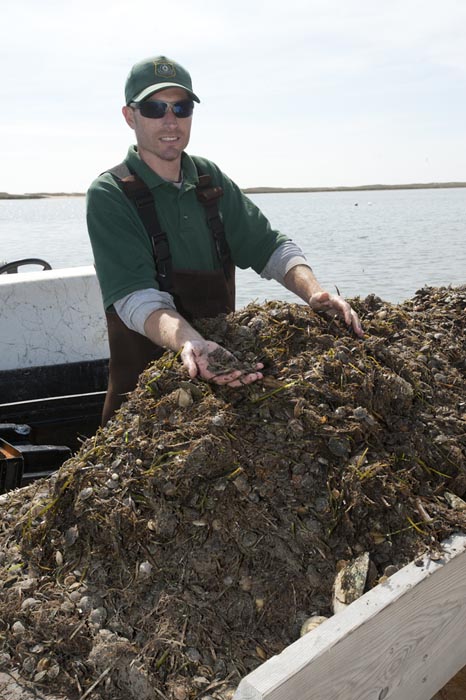It happens every autumn; a big northeaster blows across the Island stirring the waters all along the waterfront. After the storm has passed, a tragedy is discovered. Millions of baby bay scallops are discovered washed up in the wrack line on the beach.
Every time a storm hits the Island, it takes a small army of brave volunteers to save the scallops. Or worse, there are just too many of them, so millions are left to die.
Now the Edgartown shellfish department is seeking volunteers to participate in an emergency shellfish relay. They are calling it the Scallop Rescue Network. The intent is to save the scallops for another year.
“Last year we had a storm at the end of August that washed ashore about one and a half million baby bay scallops,” said Warren Gaines, deputy shellfish constable. “Subsequently we had two or three more storms. Every storm washed more and more bay scallops ashore.”
“It seems every time we get a storm, it usually blows 30 to 40 mph, it washes them all up on the beach,” Mr. Gaines said.
It is a common problem for Cape Pogue Pond, where the shallow pond nurtures a bountiful amount of seed each summer near the shoreline. To rescue the scallops, Mr. Gaines said they usually drive along the shore in a truck. Working the beach, a crew will pile the juvenile shellfish into fish totes and load them into trucks for a ride.
Several times last year and again this year, crews have been called in to truck the seed to Sengekontacket Pond where the scallops are released to live for another year. Mr. Gaines said it just makes sense to put the list of volunteers together now before the storms, not during one.
Years ago, the bay scallop fishery was in much better shape. Every pond was productive and every year the fishermen could count on a good yield. If a lot of seed got washed up on the beach, well, no one worried too much about it. But in recent years, the fishery has not been so constant. Now baby bay scallops are considered precious.
“These juvenile bay scallops are next winter’s harvest,” Mr. Gaines said. A bay scallop lives for about 18 months. This year’s juveniles are next year’s adults. With the economy poor these days, Mr. Gaines said there are quite a few shellfishermen who depend on the fishery to aid their livelihood. “The winter economy is so important for many,” he said.
On Wednesday morning this week John Black, deputy shellfish constable, was out harvesting the juvenile bay scallops close to the shore at Cape Pogue Pond and transporting them by boat to be dropped overboard in the harbor. It took him only three tows, with a bay scallop dredge, to fill the culling board to overflowing. The abundance of young bay scallops in just that particular spot was startling. “And I was towing over the same spot,” Mr. Black said. In some parts Cape Pogue Pond is loaded with juveniles.
Mr. Black said this is an unusual two years for the bay scallop fishery. He said it is unusual to have two consecutive years when the pond is so productive with seed. “Usually, it is every other year, or something like that,” he said.
With so much evidence of a healthy pond full of bay scallops for next year, it will only take a big storm sometime in the months ahead to carry some of the scallops from the bottom and onto the beach.
Mr. Gaines said his department is looking for volunteers who are willing to help. No skill is required. Waders are helpful, but not required. No boat is needed and the work is not dangerous. “We do all the work from the shore. We use trucks,” Mr. Gaines said. He said he is hoping for a strong turnout of Chappaquiddick residents willing to help.
Volunteers are asked to call 508-627-6175 and leave their name and telephone number.





Comments
Comment policy »